The suggested action for today carries the title “Let Your Love Shine” and encourages tagging three loved ones with a “top 3 things I love about you” message and invitation to do likewise. The three I wish to highlight don’t use social media, but I’ll highlight them all the same because I believe you can’t best feel your love until you let your love shine. The cat comes first First on my list is my cat Tashi. She died about eight years ago as unexpectedly as she’s impacted my life since. Last weekend while speaking with a friend grieving the recent death of her cat, I shared how I still feel Tashi with me, even though she hasn’t been with me physically for over eight years. That’s the first thing I love about Tashi. Our relationship was so strong I still feel her with me despite her death. Hearing my experience seemed to comfort my friend, suggesting perhaps she too could experience something similar. Tashi knew how to comfort me. She’d waltz into my lap as I sat discouraged, seat herself against me, and then look up at me as though saying, “How can you be sad when I’m here?” It amazes me she never failed to do that when I needed it. And she was such a character. I remember one Christmas when she chose her stocking for the fireplace that year. It’s a humorous story I’ll detail later in the program. Next comes my mother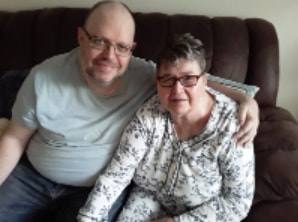 My mother’s the second of my top three. I’ve spoken about her before, most recently when I surprised her for her birthday. Her condition has since worsened, but my love for her hasn’t. My mother always thought constantly of her children. Every day she worked hard for our benefit. I remember one morning thinking I could delay my usual departure for the school bus. My mother called out a reminder to get going. But I delayed, missed the bus, and walked back in shame to confront my mother. Predictably upset, she still drove me to school. I love how that support was constant. Years later I was preparing to return to campus after the holidays to finish my master’s program. Just before I left, my mother and I knelt in prayer. I still remember her prayer for me, and it was the memory of that prayer that gave me the strength I needed to finish my program. She’s always supported me through the years. And I love that my mother taught me life skills, especially cooking. I can’t list all the times having that knowledge has helped me, but I can list teaching me how to cook among the many ways she’s blessed my life. Then comes Uncle Darryl Then there’s Uncle Darryl. He’s actually my great great uncle. I never knew him well, but he’s had a profound influence on me. I love that influence, especially the respect it engenders for veterans. Uncle Darryl’s WWII experience left him so traumatized he couldn’t talk about some things for the rest of his life. His sacrifice in defense of freedom lasted some 65 years. I also loved his welcoming nature. I could always come by unannounced, and he’d stop and entertain my visit. What an example of gifting love through attention! And he always seemed sincerely interested in me, even towards the end as his faculties slipped. I won’t be tagging anyone since none of these three loved ones use social media. But I love them each. And I love the Lord Who blessed me with love from them and many others. Letting my love shine for them today is a small gift I can give in return. If you haven’t given that small gift today to three loved ones in your life, take a moment now and let your love shine. You’ll feel more of the essence of the Christmas season. You’ll invite others to embrace that spirit in following the Lord Whose expressions of love provide the reason for the season. And that will bring you more joy in your journey.
0 Comments
Elder Uchtdorf’s remarks are no exception. He begins by describing King Solomon’s trappings of worldly success — money, power, fame, prestige. But at the end of his life, King Solomon described his success as vanity. All his advantages weren’t enough to secure his happiness. Many LDS singles experience something similar. Though they’ve many blessings surrounding them every day, because they focus excessively on the one blessing they lack, they too see life as vanity. They too wonder what really has worth when the blessings they want most continually seem out of reach. Of course, it need not be that way. Life is wonderful and beautiful. And Elder Uchtdorf describes how we can capture that vision everyday when we believe, love, and do. Believe  Everything starts with belief. That’s why faith in the Lord Jesus Christ is the first principle of the gospel. If we don’t believe, we’ll never receive. That’s because true belief always motivates to action. You wouldn’t flip a light switch in a room if you didn’t believe the lights would come on. Everything you do is based on a belief that some result connected with your action will occur or could occur. Elder Uchtdorf agrees. He declared,
I remember a time in my life when I wanted all the trite sayings about having a happy life to be more than just words but something I felt and lived every day. I wanted more than just the same old superficiality, pretending the life I wanted was just around the corner. In short, I wanted real. I think that point comes into the life of all LDS singles who are single when they thought they wouldn’t be. Whether through divorce or death or just not marrying, LDS singles hunger for real in their lives. But do you believe — I mean, really believe — you can get it? Do you believe the miracle you want to happen can happen? That it will happen? Belief is always the first step. If you don’t believe, you’ll never receive. Love The belief God will perform a miracle for you becomes easier when you feel His love for you. This is why the Prophet Joseph Smith taught one cannot have faith in Christ without a true understanding of God’s character. It’s through God’s love we best realize all of God’s attributes. That’s because, when we feel God’s love for us, that love simultaneously communicates every other attribute describing God. When you feel God’s love for you, you know more than just that He loves you. You know He’s good because His love is good. You know He’s kind because His love is kind. You know He’s compassionate because His love is compassionate. You know He’s merciful because His love is merciful. You know He’s just because His love is just. Elder Uchtdorf declared,
John the Beloved spoke truly when he wrote, “He that loveth not knoweth not God; for God is love” (1 John 4:8). When you truly believe, you can reach out to Him and taste of His love. Do  Of course, love like faith prompts us to action. The Prophet Joseph Smith taught that the man or woman “filled with the love of God is not content with blessing his [or her] family alone, but ranges through the whole world, anxious to bless the whole human race.” When we fully give ourselves to that effort, we can transcend any of life’s difficulties, including the challenges of LDS singles life. That’s why I’ve long encouraged LDS singles to adopt a personal ministry. When we partner with the Lord, a personal ministry can increase our belief in God and the miraculous blessings He wants to give us as well as provide opportunity for us to love those we serve the way God loves them. And when we allow the love of God to motivate us in fulfilling our personal ministry, we can feel for them the way God feels for them and see them the way He sees them. Elder Uchtdorf invites,
I add my testimony to that of Elder Uchtdorft that when we truly believe with all our hearts, love God and others with all our hearts, and do the right things for us with all our hearts, we will not just feel happy but be happy. And that will bring more joy in our journey.
 Given the challenges in my life right now (which I’ve discussed in previous programs), I certainly have had better Christmas seasons. But I also can’t complain. I’m greatly blessed. So are all of us. We all have people who care about us. Even when we think we don’t, God sends His angels to help us feel love in the moments when we most need to feel it. The Lord has said His angels will be “round about you to bear you up” (D&C 84:88). Sometimes those angels are actual people. Loved ones on the other side of the veil cheer us onward, and servants of the Almighty — imperfect disciples who love the Lord and try to follow the Master — provide assistance on this side. We can all be that kind of angel, the kind that gives service to those who need to receive it. The size of the service doesn’t matter, because serving just means being kind. Service doesn’t need to be big or showy. It just needs to be done. Small often counts more  There’s so many ways to serve. Two weeks ago we talked about the Light the World campaign promoted by the Church. Here you can find some wonderful ideas to serve. This week focuses on sharing light with the community. Of course, we can all think of our own ideas for service. Again, it doesn’t need to be big or showy. Very often the small acts of service are the most meaningful. I’ve shared before the account of the small act of service my mother provided during prayer. As I knelt with my mother in prayer before returning to finish my graduate program after the holiday break, I heard her beseeching the blessings of heaven to assist me in finishing. Not long after my return, I became frustrated with the progress of my research and more especially my deteriorating relationship with my major professor. So great was my frustration I wanted to quit. I still remember the impression powerfully coming over me as I marched out of the student union building intent on telling my major professor I was done. The memory of my mother praying for me gave me courage to change my mind and strength to finish my program. I wouldn’t have that graduate degree without the small act of service my mother provided. Again, service doesn’t need to be big or showy. It just needs to be done. Christ showed the way 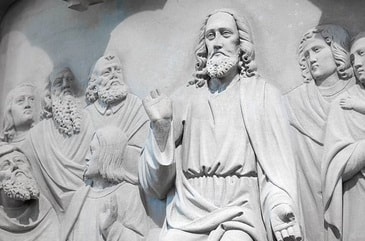 In the Sermon on the Mount, Christ demonstrates excellent examples of service — acts of kindness done for the praise of God and not for the praise of men. He specifically mentions giving alms, fasting, and prayer. We can each give these small acts of service. Our contributions to the Church’s humanitarian aid fund provide for the truly needy of the world. Many other worthy charities accept donations of money, time, and other resources. We can all give something. We can all also fast in behalf of those we know in need. And we can all include petitions for blessings in our prayers that someone we know will be sustained and even prospered through a difficult challenge. Those prayers are especially powerful when we pray for others by name. I’ve enjoyed great blessings through small acts of service I’ve performed in connection with my Sermon on the Mount study. I’ve spoken before about this annual tradition in which I spend the last 40 days of the year applying the Sermon on the Mount to my life. One recent act of service I performed was to bring lunch to my father and afterwards help him disassemble his backyard gazebo. It wasn’t service you could describe as big or showy. But it was service that needed to be done. Your service awaits  Everything I’ve discussed so far is really just the tip of the tip of the iceberg. The small acts of service we could provide are truly infinite in number. And every one of them can have a powerful influence for good. What will your small act of service be? What kindness will you show someone? To what causes will you contribute your money, your time, or your resources? For whom will you fast? For whom will you pray by name? You can make this Christmas season truly memorable for both you and those you serve when you share your kindness all around. Service doesn’t need to be big or showy. It just does need to be done. When you take the time to give of your time, your money, your resources — and most importantly your love — you shine the light of Christ into a world growing ever more dark. And that will bring you more joy in your journey.
 General Conference has ended, and traditionally my task is selecting just one of the many fabulous addresses for the post-Conference program focus of Joy in the Journey Radio. I’ve always struggled with that task. This past Conference was no exception. And yet at the same time, it was. This latest General Conference was exceptional — truly historic, in fact — in many ways. Consider everything that happened, starting with what occurred before the Conference. This was the first Conference on the new schedule. The third session now alternates between the General Priesthood meeting and the General Women’s meeting, now no longer held the weekend before Conference. We also started the year with a new method of instruction during the block schedule in which we face and teach each other. Truly all that was just the tip of the iceberg. Conference began with a solemn assembly. We learned that wards will discontinue high priests groups. Then came the death of home teaching and visiting teaching. Instead, we will now be ministering to others in our wards and branches. And let’s not forget the announcement of new temples. Perhaps the most historic was the last in President Nelson’s list —“somewhere near a major city in Russia.” Truly, in many ways this Conference was historic. Now it’s our turn to be historic by playing our part in the new changes which our leaders have outlined. Embrace the reorganization  I’ll say it from the start — I’m rather enamored with these changes. I can see them playing a pivotal role in the evolution of the broader Latter-day Saint community. And at the same time, I feel very strongly we haven’t yet realized all the greatness that lies ahead for us as a people. Take, for example, the reorganization of local priesthood quorums. Now only those high priests currently serving in a designated leadership position will be members of one stake high priests group over which the stake president presides. All other high priests will join the elder’s quorum of their respective wards. I can see the vision the Brethren described in older and younger generations each supporting and learning from each other. Yet the larger benefit may well be the change that takes place in our hearts as we knit them together in love and unity. As we put off the generational lenses of our worldly culture and embrace the unity of a true gospel culture, we’ll find our lives enriched as we cannot now imagine. Embrace the ministering  That unity can and will extend beyond the Melchizedek Priesthood brethren to all adults and youth in our wards. No longer will we go home teaching and visiting teaching. Now we will minister to our wards and branches. Gone are the days of scheduling last-minute visits to read a message others can well read for themselves. Now we’ll focus on meeting the needs of the people to whom we are called to minister. Now, whether performed by brethren or sisters, by young Aaronic Priesthood holders or now Young Women, we’ll work together to meet one another’s needs. This next evolutionary step shouldn’t surprise anyone. After all, this is what real home teaching and visiting teaching has always been. Meeting the needs of the people has always been the true intent behind these programs. Announcing it as the stated purpose and then coupling it with new language that supports that end will reinforce that intention to wonderful effect. Embrace the new culture  Perhaps the most exciting result I envision from all these changes is the change in our culture, especially as it concerns LDS singles. I see the day when LDS singles no longer feel like second-class citizens in the Kingdom but rather full-fledged “fellowcitizens with the Saints” (Ephesians 2:19). In fact, I see the changes announced in Conference laying the groundwork for changing the culture for singles within the broader LDS community. For far too long, LDS singles have existed on the fringes of mainstream LDS society. Centering LDS culture around a status that by definition singles don’t have naturally yields this result. Now with the new emphasis on meeting the needs of individuals and families, the Brethren are leading us into a new culture, one in which we see each other as the brothers and sisters we really are, one centered around Christ and the covenants we make with Him, and one in which we strive to follow His wonderful example of ministering to the one. The changes we are about to make are historic. A bright and glorious future awaits us all. If we will embrace history, surrender to love, and seek to minister to one another as the Savior would, we will change the culture because we’ll have changed ourselves. And that will bring us more joy in our journey.
This is a common plight among singles groups everywhere, especially in areas where Latter-day Saints form a small proportion of the population. There is a solution to this dilemma, but it’s not very common. First, we need to ask ourselves, “What exactly are we trying to accomplish? How are we defining success?” Once we have that definition, we need to evaluate it, because our definition of success may not be the one we need to have. With the right definition of success in play, your next steps are developing a vision and then aligning everyone with that vision. Many singles programs falter because they have the wrong vision or no vision at all. And you can’t rally anyone around a vision that either doesn’t work or doesn’t exist. How do these steps typically play out? Let’s examine that. Define your success 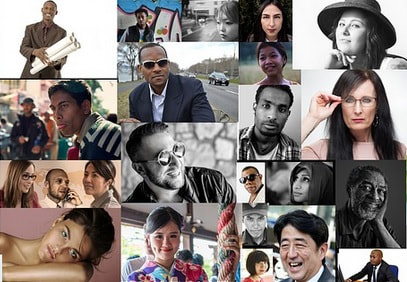 I’ve got a few years experience as both a ward and stake single adult rep, so I’ve sat in plenty of those meetings where activities and singles issues are discussed. I’ve also shared experiences with numerous singles groups leaders at conferences. One pattern I’ve found is the typical definition of success. Most singles leaders define success by attendance; the more people who come, the more successful the activity. But what’s really going on here? Does a bigger number really mean more success? In my experience, bigger numbers are simply a bigger stroke to the ego of those who organized and sponsored the activity. That doesn’t really help anyone live a better life. If we can put our egos aside, we can more easily recognize that the Savior focused on only one number: the number one. He was always concerned about the individual. In fact, most of the stories we have of Him ministering to others involves His interaction with an individual person. If we define success in terms of touching or improving the life of at least one individual, then it doesn’t matter how many people attend. Success will always be within our grasp. And paradoxically, it lays the foundation for explosive growth in the numbers. Develop your vision  In Proverbs 29:18 we read, “Where there is no vision, the people perish.” That’s just as true for singles groups as it is for anyone else. Typically, LDS singles attend activities with one of two visions — the dating forum or the activity club. I’ve spoken about each of these at length in previous posts, but here’s a brief review. The dating forum perspective sees singles activities solely as a means to find an eternal companion. If they don’t see anyone they want to date, people don’t attend. Then there’s the activity club. This is the group that’s tired of dating and just wants to have fun with friends. The problem with both of these approaches is their inward focus. Singles with either of these perspectives invariably focus on serving themselves. Contrast that with the more effective approach of the support network — attending activities with the purpose of supporting other singles. That outward focus aligns much better with the path of discipleship our Savior marked. When everyone adopts the attitude of the support network, people feel they’re part of something bigger than themselves. They have a contribution to make that can improve the life of someone else. And losing themselves in service, they find themselves enjoying life a lot more. Build the network  What I’m describing won’t happen overnight. That’s because it’s not some quick-fix, fly-by-night fairy dust. This is a real solution that really works. While I lived on the East Coast, our activity attendance increased by 10X in one year. But more important than that, our exchanges with each other were more real. We were genuinely concerned about each other, despite coming from different generations and backgrounds. Our activities weren’t about completing a calendar or checking a box on a to-do list. Rather our activities were about supporting LDS singles. That’s the driver behind real growth — love. People respond to love. Feeling loved is one of our most deeply seated needs as individual children of God. When you love the people into a support network, they’ll join you. The dating forum and the activity club make very poor primary drivers behind participation. We best help ourselves and everyone else when we discard our individual agendas for attending singles activities. People have needs. When we align what we do with meeting the needs of the people, we’ll find the true success that the Savior marked. And that will bring more joy in our journey.
 Recently I’ve reflected on everything I’ve done since all this started on 12/12/12. I’ve come a long way. The road behind me is filled with accomplishment, much of which I simply didn’t envision back in 2012. I can’t say all of my blog posts have been classics, but I do have a post for every week since the start of 2014. That’s almost 3 ½ years of weekly posts, most of which have no comments. I said back then I wasn’t doing any of this for acclaim, and that’s still true today. All I’ve ever wanted was real. You don’t need the attention of others to get real. That post at the start of 2014 is definitely a classic. I’ve produced a few more along the way. One that keeps coming back to me reminisced about a older friend who lives in Seattle. We conversed 90 minutes about love, concluding no one can really define what love is. We know when it’s there and when it’s not because we can feel it. But it’s impossible to define exactly what love is. Love means sacrifice  That conversation transformed me. It’s since led me to ponder this question: What does it mean to love someone? Before that conversation, I thought I knew. Since then, I’m not completely sure I do know. Part of the answer surely lies in sacrifice, forgoing your own desires to help others fulfill theirs. It’s been almost four years since Tashi died, but I still think about her and how my heart broke. Even a blind man can see I loved that cat. But why? When I first adopted her, Tashi had tremendous trouble eating properly. Every time I fed her, she would eat as though it were her last meal, which isn’t normal for cats. This and other behaviors led me to wonder if a previous owner had abused her. Of course, eating so quickly caused her to vomit later. Every day I had a new mess to clean. I spent 11 months training Tashi to eat normally. And even then she never completely stopped vomiting, though it was much less frequent than before. Without my sacrifice, my love for her wouldn’t be as deep as it was and still is today. Love means selflessness 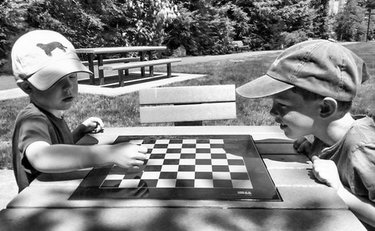 That conversation with my Seattle friend reminds me of the final midsingles activity I attended there — FHE in my friend’s home. The lesson portion evolved into a conversation in which people were sharing their thoughts about how to grow the midsingles group. Normally I like to listen to others and learn how they see the world. This evening, however, I couldn’t resist sharing my perspective. And knowing this to be my last activity there for the foreseeable future, I held nothing back. I declared love is meaningful only when it involves people who are different. Talking to others we like and sitting with others we want around us isn’t all that difficult. We get to stay in our comfort zone. Conversely, talking with others who are very different and sitting with others we don’t want around us does require us to leave our comfort zone. Yet here love truly has meaning because here we act against self-interest. The Savior taught,
Love means discomfort  I spoke many other words along the same vein that evening. All together they made some visibly uncomfortable. I rejoiced to see that, not because I have some sadistic pleasure in seeing people squirm but because it meant I was speaking truth. I was getting real. In the end, I invited everyone to surrender to love. I testified that only by surrendering to love would we ever become the truly supportive group everyone talked about becoming. Since then I’ve seen singles group after singles group struggle with creating a true sense of community. Leaders who consider singles committees as nothing more than activity planning groups don’t help. No one can come together when everyone has their own agenda. That will never change until we all surrender to love. Only by forgetting ourselves and focusing upon others will we ever create the community of the support network many LDS singles need in their lives. Yes, surrendering to love is hard. It goes against the natural man and woman. But the rewards of love far outweigh the price we must pay to obtain it. And having those rewards will bring us more joy in our journey. |
Author
Howdy! I'm Lance, host of Joy in the Journey Radio. I've been blogging about LDS singles life since 2012, and since 2018 I've been producing a weekly Internet radio show and podcast to help LDS singles have more joy in their journey and bring all Latter-day Saints together. Let's engage a conversation that will increase the faith of LDS singles and bring singles and marrieds together in a true unity of the faith.
Comment
Joy in the Journey Radio encourages the free discussion of ideas but reserves the right to remove and/or block comments which do not conform to LDS standards.
Donate
Joy in the Journey Radio offers many free resources to help LDS singles everywhere, but it certainly isn't free! Help Joy in the Journey Radio in its mission to improve the lives of LDS singles by donating today.
Posts by Month
December 2022
Categories
All
|
|||||||||||||||||||||||||||||||||||||||||||||||||



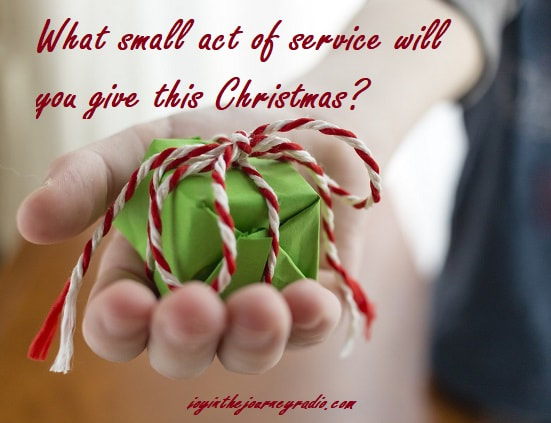

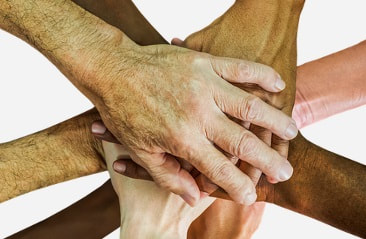
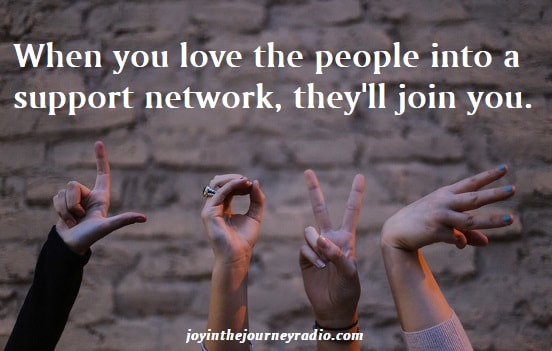
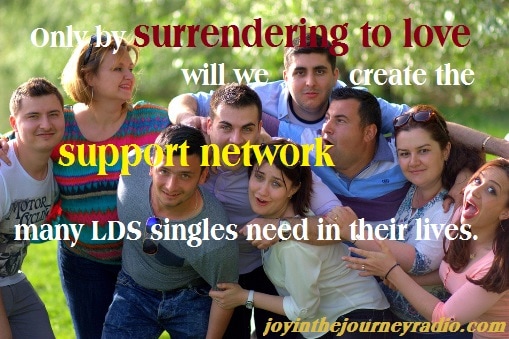
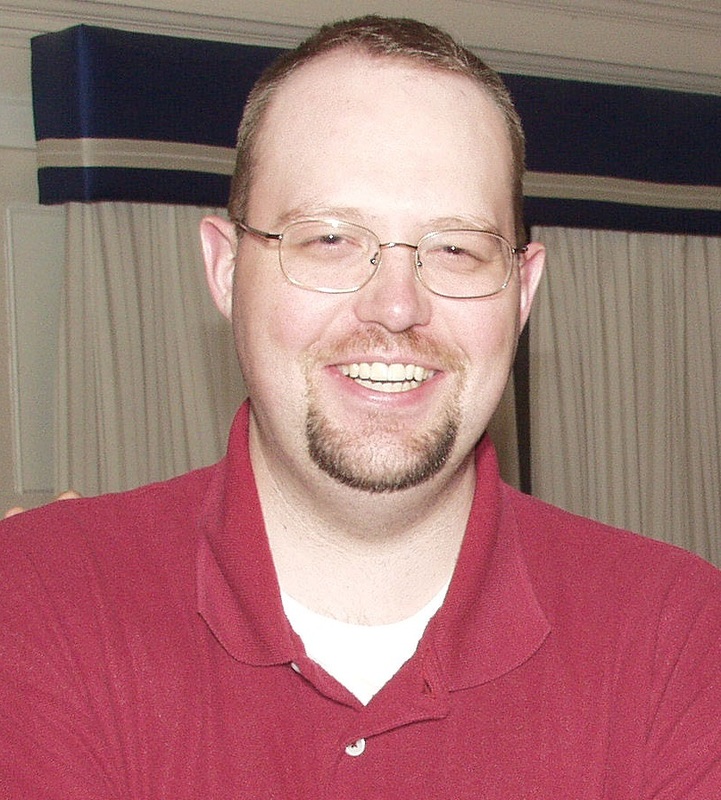
 RSS Feed
RSS Feed